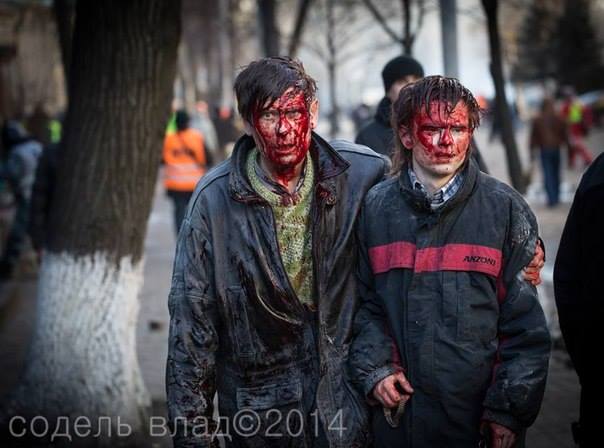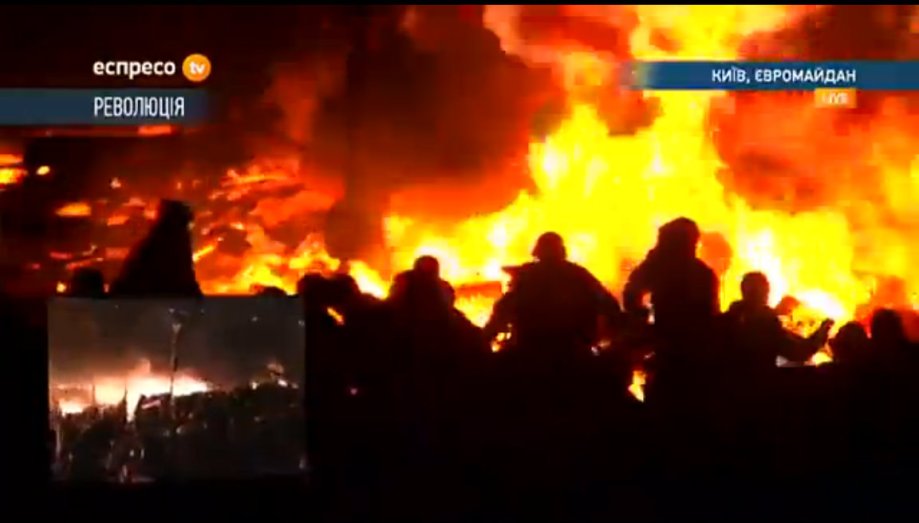Disclaimer: In May 2014 in Boston I defended my master thesis about the role of social media in popular protests in Ukraine (2013-2014). Publishing excerpts of thesis, the following one – about cyber attacks.
The growing role of the Internet in serving up news for the audiences has a positive influence on maintaining media freedoms worldwide. The opponents of free speech respond with cyber attacks targeting news sites and social media. Ukraine is a case. In 2013-2014, Ukraine witnessed an increased number of cyber attacks against independent online media and media activists. According to an IMI report, 49 cyber attacks against journalists in Ukraine were made in 2013.
The attacks reflect a general pattern of silencing Internet voices during protests in many countries. The attempts to shut down the Internet were carried out during the uprisings in Iran in 2009, Egypt in 2011, and Syria in 2012. Even in Turkey, the country that aspires to join the EU, the government blocked Twitter and Facebook upon the rise of anti-government protests in March 2014.
During the protests in Ukraine in 2013-2014, unidentified hackers applied different strategies of cyber war. First of all, they attempted to crack users’ emails and files. For example, in October 2014, the computer of Oksana Romanyuk, the executive director of the Institute of Mass Information (IMI), was hacked, and the private email correspondence was leaked publicly.
Also, hackers targeted social networks and news sites through distributed denial-of-service (DDoS) attack as an attempt to make a machine or network resource unavailable to its intended user.
 On December 2, 2013, the site of Ukrainska Pravda was under a DDoS attack. It was the first identified attack against a news resource from the time the protests began on November 21, 2013.
On December 2, 2013, the site of Ukrainska Pravda was under a DDoS attack. It was the first identified attack against a news resource from the time the protests began on November 21, 2013.
On December 13, 2013, Cityband.com.ua, a resource that had published a map
of protests in Kyiv, was shut down. The notice on its front page said: “Our site is under DDoS attack. We had to close hosting. Sorry, friends. Instead we have created a more informative map on Yandex – Cityband Euromaidan.”
On December 14, 2013, journalists at Liga.net posted a message to their official page in Facebook: “We are currently under a very strong DDoS attack. Our technical team is fighting the night through.” The site http://www.yanukovich.info, that published findings on corruption schemes of President Yanukovych’s family, was shut down by DDoS attacks for a couple of days in the middle of December 2013.
Unknown hackers have likewise attacked other online news resources covering the Ukrainian protests – Glavcom.ua, Censor.net and RadioSvoboda.org.
In addition to cyber attacks, the work of journalists and independent online resources was challenged by unidentified journalists who launched fake sites, which echoed popular news sites. In particular, Ukrainska Pravda discovered two copycat sites, launched in summer 2013. The first, Ukrainska Kryvda, stole the design of Ukrainska Pravda and published biased anti-opposition articles.
By launching Ukrainska Kryvda, initiators violated copyright laws, registered their site in Russia and located their hosting in Australia, having protected the identity of the people behind the site.
The second site stole the brand “Ukrainska Pravda” and registered domain name similar to pravda.com.ua – ukrpravda.ua. Both fake sites demonstrated that the methods to combat independent journalism in Ukraine had become more sophisticated. As of March 2014 both fake sites have been deactivated after months of their activity.
——–the end———-













